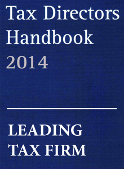
Taxation of capital gains in Latvia
Capital gain is difference between sales price of capital asset and value of acquisition, as well as difference between liquidation quota and value of investment.
The value of acquisition depends on how the capital asset is acquired.
Income from capital gain is taxed at a rate 15%.
As regarding to income gained by non-resident from sale of capital assets (other than financial instruments) based in Latvia, the income is taxed at a rate of 2% if the payer of income withholds the tax at the place of income payment.
Capital gains are summed in the taxation period if within the taxation period several capital assets are sold. If the calculated capital gain or its total amount is negative, it is ignored for tax purposes. However, if the capital gains of the taxation year from the sale of one capital asset is negative, but from the other – positive, the resulting losses may be covered by the positive capital gain.
Income from capital other than capital gain is taxed at a rate 10%.
Income from capital other than capital gain by Latvian law includes dividends from company shares and stocks and income from other rights (not deriving from debt obligations) to participate in distribution of profit and income from private partnerships, interest income and similar income, also income related to interest income, income from investment in private pension funds and incomes from life insurance agreements with savings;
In general, the day, when income is deemed to be received, is the day, when a person receives money or other things.
If the income from capital gain is to be received during several taxation periods, it is deemed that income is gained in that taxation period, when the income is actually received.
If the income from capital gain is to be received in more than 3 taxation periods (as from the year of sale agreement), it is deemed that income is gained in the first 3 taxation periods.
In case of shares swap (without any other consideration), the day of income is the day, when the swapped shares are sold.
As regards to the income from capital the day of income is the day, when the income is calculated. Day of dividend income and respectively the day of dividend income disbursement is the day, when the dividends are calculated. However, if dividends are calculated for the publicly listed companies, the day of dividend income is the day, when dividends are paid.








